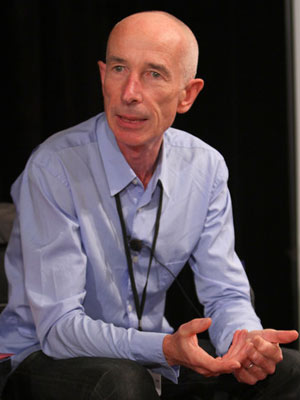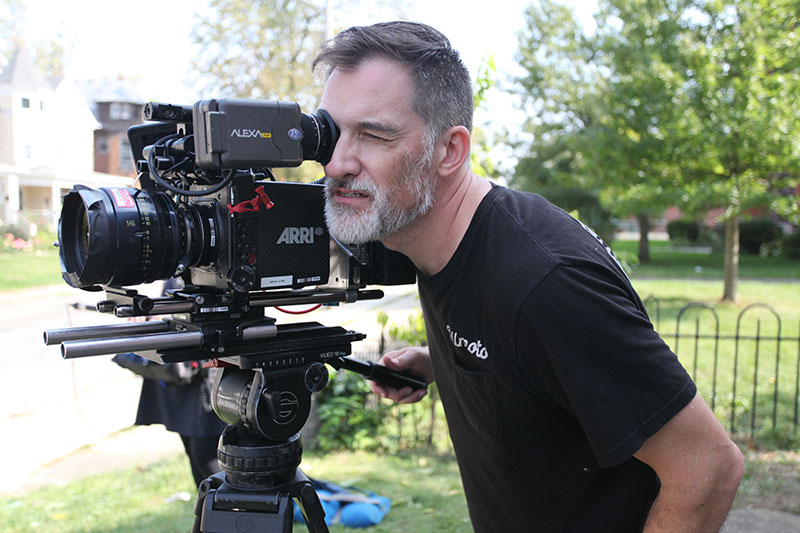Applications are open MFA in TV Writing & MFA in Film! International deadline May 1, 2025. Domestic deadline July 15, 2025.
Screenwriting
We teach craft but relish your individual voices above all, and we seek to help you develop those voices.
We believe stories work on us, and that we can study how they do. We also believe that there is a path from the unconscious to the page, from your experience to your creation, that is where the magic often happens. We can help set you up to be there when it does.
We provide the structure and the support and the feedback, and you bring the willingness to work. The willingness to be open to feedback. The willingness to keep chipping away at the clay of your inspiration when no one else can quite see it, yet. The willingness to go back to your work again and again, with rigor.
Each one of our writing workshops becomes a community. We encourage each other and push each other and hold each other up as we strive to create the best work we can, and to do the thing we are driven to do: tell stories.
Join us!
Our Emphasis: YOUR VOICE, YOUR STORY
Year 1

Writing the Short. You will study short film forms and dramatic storytelling principles, but the focus of this class is on practice. The main fuel for each class will be your work. You write and revise short film scripts, provide and receive peer feedback, and reflect upon the process. You will leave with three short film scripts, two of which have been through at least one revision.This includes the very short film you will shoot in Spring.
Advance Party - The Advance Party challenges all you know about screenwriting as you progress from a blank page to a short form screenplay. Each student creates a single character and learns how to describe their character in an authentic way. If the class size is 10 then 10 characters will emerge and you will choose which of these characters will interact with your own.
We then focus on the natural story as an essential element in this organic approach to screenwriting. As we progress, each of your stories will evolve, not out of traditional plot driven characterization but out of the characters' authentic actions and reactions to situations created by you. This process adds another creative tool to your writer’s toolkit.
Screenwriting I. Students develop a feature length screenplay idea. Screenings, screenplay readings, and analysis of feature film structure accompany writing exercises and assignments designed to help you develop your idea into a compelling, original story. You will leave with a prose treatment or step outline of your story from start to finish as well as the first 30 pages.
Production 1. You will direct one of the short films you wrote in Fall; the process of producing, directing, and editing your own script provides powerful instruction for future screenwriting.
GOAL for first year is… to learn character and collaboration, to generate short scripts, to find the stories you want to tell, to study dramatic storytelling and begin working on a feature screenplay.
Year 2
Screenwriting II - This course builds on introductory screenwriting skills and elements, offering more intensive study of the screenwriting craft, especially character, scene construction, scene sequence/juxtaposition and dialogue. Here you will finish or rewrite your full-length feature screenplay.
Television Writing – Creating an Original Series - Pilot. You will create an original series mini-bible and write a pilot script. You will create and develop an original series concept. This requires a set of characters and a central conflict that can sustain multiple seasons of compelling stories. The successful series has both this type of story engine and a strong emotional core. From the series concept you will move on to creating stories for your pilot episode, outlining and finally writing scenes.
Script Doctor / Revision - You have a long form script and it’s not all you thought it would be. Find out why in this intensive collaborative script revision class. Also open to Year 1 and Year 3 students on a case by case basis. You must have a finished draft to take this class.
Television Writing - Pilot 2 Finish your pilot and learn how to write a Bible.
GOAL for second year is finishing and revising your feature and writing and revising an original television pilot. In addition, you may take classes in microbudget filmmaking, directing, advanced production, marketing, Killer film survey, advanced master class in independent film production, classes in Creative Writing, etc.
Year 3
Thesis Requirements

The Screenwriting thesis project is a feature length screenplay that demonstrates originality of subject matter as well as the mastery of the technique of cinematic and dramatic structure, characterization and dialogue. The thesis script must be a project that you develop under the direction of your thesis advisor. No collaborative authorship is permitted for this script, except on rare occasions with prior approval.
To graduate with a concentration in screenwriting, screenwriters must have the following body of work:
1) Two feature length screenplays (the thesis screenplay and one additional polished screenplay)
OR
2) One feature screenplay and a television pilot + bible (one polished feature script + thesis television pilot and bible).
All writing concentrates must register for FLM 691 AND FLM 692 Thesis and MFA Project with their thesis advisor while working on their screenplays.
Meet some of our screenwriting faculty:
“Writing teaches you how to write. Writing in one of our workshops – in a community of writers - teaches you how to write so your work can connect to an audience. Let’s do this!” -Jennie Allen
“…story told without embellishment and with total reliance on event, action, and dialogue.” - Lenny Crooks
"Frequently someone else has created the world and the characters on a television show so your job as a writer is to come up with story, story and then more story for those characters and that world." - Scott Burkhardt
To join our community of artists and visual storytellers, the first step is to apply.

